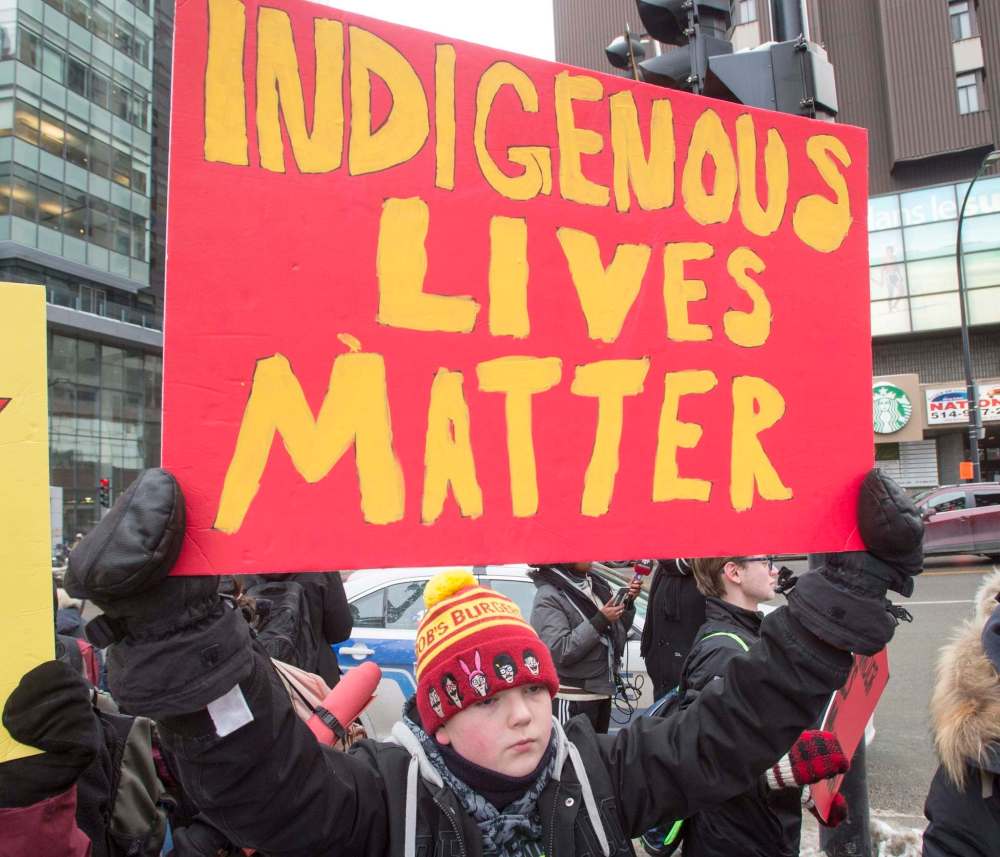Gerald Stanley verdict continues to divide Canadians: poll
Advertisement
Read this article for free:
or
Already have an account? Log in here »
To continue reading, please subscribe:
Monthly Digital Subscription
$0 for the first 4 weeks*
- Enjoy unlimited reading on winnipegfreepress.com
- Read the E-Edition, our digital replica newspaper
- Access News Break, our award-winning app
- Play interactive puzzles
*No charge for 4 weeks then price increases to the regular rate of $19.00 plus GST every four weeks. Offer available to new and qualified returning subscribers only. Cancel any time.
Monthly Digital Subscription
$4.75/week*
- Enjoy unlimited reading on winnipegfreepress.com
- Read the E-Edition, our digital replica newspaper
- Access News Break, our award-winning app
- Play interactive puzzles
*Billed as $19 plus GST every four weeks. Cancel any time.
To continue reading, please subscribe:
Add Free Press access to your Brandon Sun subscription for only an additional
$1 for the first 4 weeks*
*Your next subscription payment will increase by $1.00 and you will be charged $16.99 plus GST for four weeks. After four weeks, your payment will increase to $23.99 plus GST every four weeks.
Read unlimited articles for free today:
or
Already have an account? Log in here »
Hey there, time traveller!
This article was published 27/02/2018 (2845 days ago), so information in it may no longer be current.
Some 44 per cent of Manitobans believe the Gerald Stanley trial verdict — in which a white, Saskatchewan farmer was acquitted in the shooting death of a Cree man — was “fair and just,” according to a new Angus Reid poll.
“In terms of the Manitoba results, there are some very regional aspects to opinions to this (poll),” Angus Reid spokeswoman Shachi Kurl said in a phone interview Tuesday.
The Manitoba results were tied with Alberta for the second-highest percentage by region. Saskatchewan was way ahead, with 63 per cent of respondents polled agreeing the verdict was “fair and just.”

Twenty-six per cent of Manitoba respondents said the verdict was “flawed and wrong;” for Saskatchewan respondents, that number was 17 per cent.
“In Saskatchewan, you had some feelings that are notably different from other parts of the country. The further away you get from the place where this happened, the more the opinions diverge,” Kurl said.
The acquittal Feb. 9 of Stanley — a Biggar, Sask.-area farmer who stood trial for second-degree murder in the 2016 shooting death of 22-year-old Colten Boushie — prompted a national debate on about how the Canadian justice system handles cases involving Indigenous people.
Across Canada, opinion is split, according to the poll’s findings. Angus Reid called the verdict a “powder keg,” in statements that accompanied the report’s release.
Some 30 per cent thought the verdict was “fair and just.” Another 32 per cent responded it was “wrong and flawed.” Some 38 per cent of Canadians didn’t know what to think. They said they were unsure about the verdict.
Regionally, the divisions are a lot easier to see.
“Forty-four per cent of Albertans (and Manitobans) thought the verdict was fair. That’s higher than in British Columbia, Quebec, Ontario and Atlantic Canada, but not as high as Saskatchewan,” Kurl said. “They tend to fall out along political lines and some other lines.”
Kurl said the sample size in Manitoba was 180 respondents, more or less the usual number and typical of samples for the pollster’s national polls.
“It’s general population. It’s rural and it’s urban. There may be some farmers, but I can’t tell you how many,” Kurl said of the Manitoba sample.
Meanwhile, the poll also found six out of 10 Canadians agree reforms are needed to ensure juries better reflect the communities they come from. And 46 per cent turned thumbs down on post-verdict comments made by Prime Minister Justin Trudeau.
“Trudeau has faced significant criticism for appearing to question the jury’s decision in the case and asserting that Canada must “do better” in the future. The poll didn’t ask about similar comments from federal Justice Minister Jody Wilson Raybould.
Both the PM and the Justice Minister met with Colten Boushie’s family; Trudeau described his meeting as very emotional.
The poll was an online survey from Feb. 15 to 19, of a representative sample of 2,501 Canadian adults who are members of the Angus Reid Forum. The sample plan included large oversamples in specific regions which were then weighted down to provide a national snapshot. For comparison purposes only, a probability sample of this size, with this sample plan, would carry a margin of error of plus or minus 2.5 percentage points, 19 times out of 20.
The Manitoba Indigenous leaders who organized rallies and brought hundreds out to the streets in the wake of Stanley’s acquittal, and again after the not-guilty verdict in the second-degree murder trial of Raymond Cormier in the death of 15-year-old First Nations girl Tina Fontaine, did not respond to a request for comment on the poll.
alexandra.paul@freepress.mb.ca


